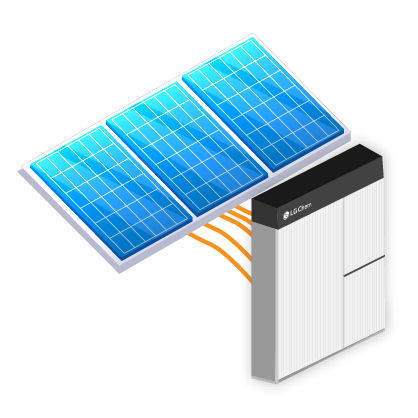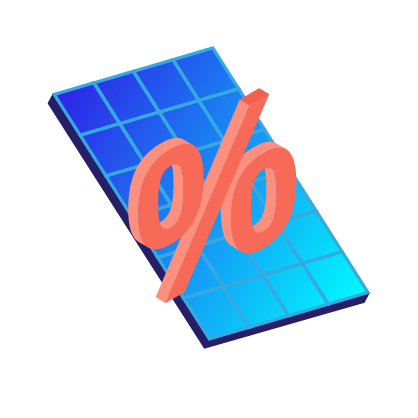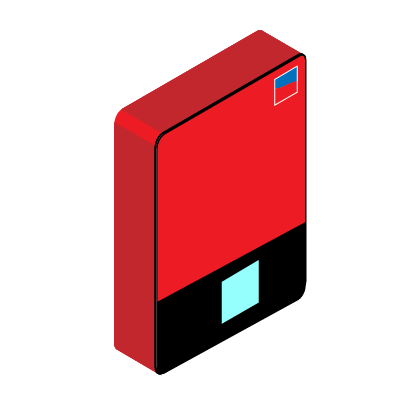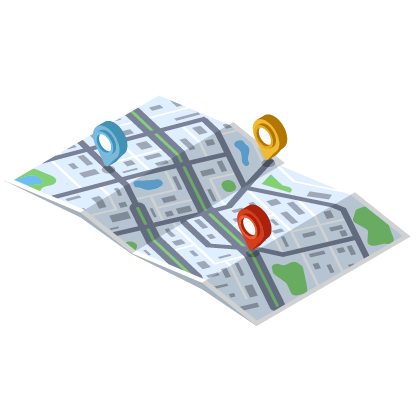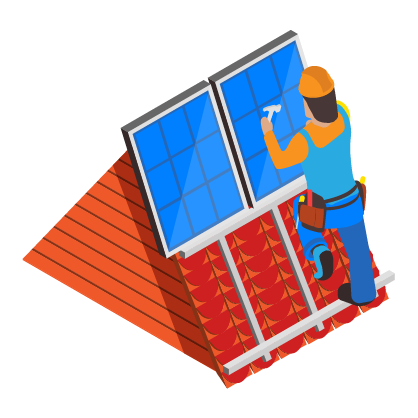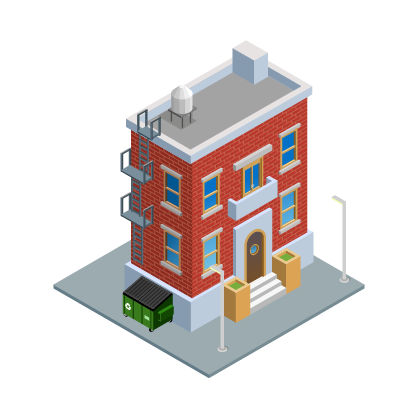Do Solar Panels Work At Night?
Do solar panels work at night?
The short answer is: no, solar energy systems only operate during the day. This is because the power from the sun is key to how a solar panel turns light into electricity. However, that does not mean that solar cannot power your home day and night! Wait, what?
That’s right, even though solar panels don’t generate electricity at night, they can still be used to power your home or offset the use of grid energy (and the cost that comes with it).
In this article, we’ll cover how solar panels work and how they can be used to power your home even if they don’t produce electricity at night.
See how much you could save by switching to solar.
Why Don’t Solar Panels Work At Night? A Technical Explanation
Solar panels are made up of a collection of solar cells made of two thin wafers of semiconductive material, usually silicon. Since silicon is not a great conductor by itself, each wafer is “doped” with impurities to make them more effective.
One wafer is doped with phosphorus to create more free electrons, making the wafer more negative. The other wafer is laced with boron which has more receptor holes for electrons, making it more positive. This creates an electrical field, in which free electrons move back and forth within the solar cells.
This is where the sun comes in.
Light from the sun travels as photons or packets of energy. When a photon hits your solar cell, it dislodges an electron creating an electron space. The electron just wants to fill the space, but the electric field moves the space to the positive side and the free electron to the negative side.
In order to get back, the electron has to travel the long way around to get back. These traveling electrons are the current in your photovoltaic (PV) system and the electric field creates the voltage. The current from the cells flows out of each panel, through inverters, and into your home.
Without the sun’s energy to dislodge the electrons from their happy state, there is no electron flow, no current, and no power to your home.
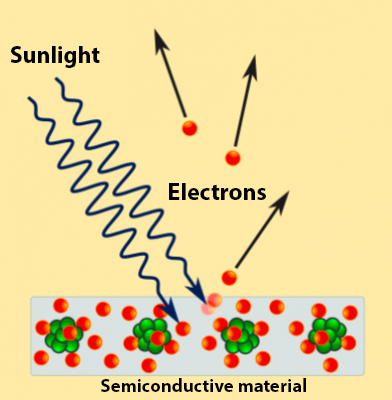
What about other sources of light?
So light makes solar panels work and there are sources of light at night, such as streetlights, the moon, and the stars. Couldn’t we use these to make solar panels work at night?
Technically, it can happen. Moonlight is sunlight reflected off the moon’s surface, but the intensity is much less than direct sunlight. A small trickle of power is possible, but with small system sizes, the total current is unlikely to be enough to reach the minimum to activate the system’s inverter to change the energy to AC power that your home can use.
For practical purposes, other sources of light just are not strong enough to make electricity production useful. But there may be other ways to make solar panels work at night.
In 2022, researchers at Stanford University retrofitted a solar panel to harvest thermal electricity from the solar cells cooling at night. In their trials, they observed 50 milliwatts — or 0.05 Watts — per square meter of nighttime power generation.
While this is an exciting discovery it isn’t terribly practical for homeowners yet. Homeowners should stick to the two existing structures that makes rooftop solar work even though the panels don’t generate electricity at night: Net metering and battery storage.
Related Reading: How To Choose Solar Panels for Your Home
Net Metering and Battery Storage: How Solar Works at Night
If solar panels don’t work at night, then why are so many people going solar? Well, there are two structures that homeowners use to make solar their primary source of electricity.
Net metering
The first and most popular structure is called “net energy metering” — also known as net metering or NEM. Solar systems are designed to produce more energy than needed during the day and in the summer. This excess power is pushed onto the utility grid and used to power local systems, like neighboring houses and building. Solar system owners earn credit for excess generation by the utilities that manage the grid, which are used to offset the electricity they pull from the grid at night and in times of low production.
The balance of credits and debits are settled once a year during a true-up period. Many solar systems are designed for 100% offset and the homeowners pay $0 for grid electricty., in which the lower monthly payments for the solar equipment completely replace monthly utility bills.
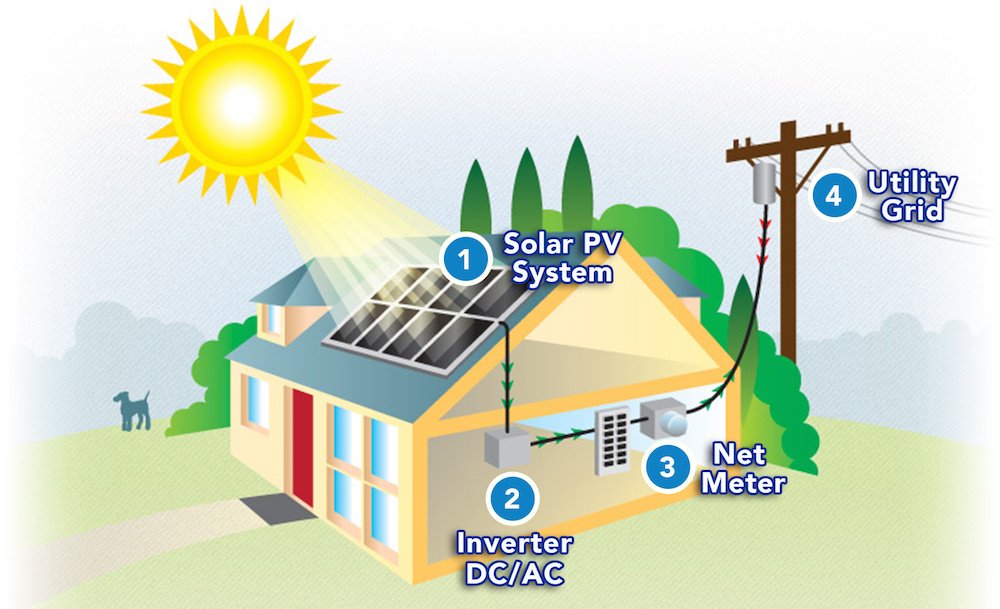
Battery storage
The second way to make solar panels work at night is with battery storage. Batteries can be used to store excess solar energy to be either independent of the grid or only rely on the grid very infrequently. By pairing solar and battery, homeowners essentially create their own miniature utility and achieve energy independence. Solar and battery are also a reliable form of backup power that’s come to the rescue this year during a record heatwave in California and Hurricaine Ian in Florida.
On the commercial level, some utility-scale solar operations even use thermal banking to heat molten salt during the day and then discharge the stored energy at night. A power plant generates electricity from the heat of the molten salt even into the early hours of the night.
Bottom line
Do solar panels work at night? No, they do not. However, there are a few ways that your nighttime power usage can be offset by solar produced during the day, including net metering and battery storage.
Both methods offer substantial energy cost savings and can drastically reduce your carbon footprint.



